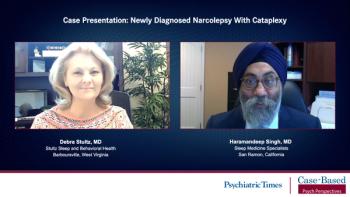
The term 'suicidal bombings' should perhaps be renamed 'homicidal bombings.' Here's why.

The term 'suicidal bombings' should perhaps be renamed 'homicidal bombings.' Here's why.

There's 1 suicide death every 45 seconds... every community has a suicide story, but we can help.

With his camera in his hand, a psychiatrist searches for our common humanity on the streets of the developing world.

Here are a few tips on how to improve children's sleep without medication.

"The moon drops one or two feathers into the field..."

Conferences: the holy days of psychiatry.

Decades of efforts to find effective medical treatments for dementia and Alzheimers disease have largely failed. Would a public health approach be more effective?

"Until then, every forest had wolves in it..."

Decades after September 11, 2001, many first responders still live with PTSD. Will the same be true of physicians who saw the worst of the pandemic?

What's your personal mantra?

Did the opioid crisis go away during COVID-19? Or has it gotten worse?

What social and scientific advances could help elite athletes with mental illnesses?

"I want a god as my accomplice..."


Did the opioid crisis disappear?

What are some ways to overcome anxieties about returning to "normal"?

In this custom video series, Debra Stultz, MD, and Haramandeep Singh, MD, share advice for community-based psychiatrists on the management of narcolepsy.

In this custom video series, sleep specialists discuss common unmet needs and challenges when treating patients with narcolepsy.

In this custom video series, Haramandeep Singh, MD, and Debra Stultz, MD, discuss the roles and responsibilities of sleep specialists, neurologists, and psychiatrists in the management of narcolepsy.

In this custom video series, experts in sleep medicine discuss patient factors and symptoms they consider when selecting optimal treatment regimens for patients with narcolepsy.

In this custom video series, Debra Stultz, MD, comments on common psychiatric comorbidities seen with narcolepsy and the impact on a patient’s quality of life.

In this custom video series, Haramandeep Singh, MD, and Debra Stultz, MD, discuss a case involving a 23-year-old man with schizoaffective disorder and newly diagnosed narcolepsy.

In this custom video series, Debra Stultz, MD, leads the discussion on the use of pitolisant as initial therapy for a patient newly diagnosed with narcolepsy and cataplexy.

In this custom video series, experts in sleep medicine provide insight on ways cataplexy can present in patients with narcolepsy.

In this custom video series, Haramandeep Singh, MD, and Debra Stultz, MD, discuss a case involving a 20-year-old woman newly diagnosed with narcolepsy and cataplexy, initial impressions, and appropriate provider referral.

What suicide prevention programs have the best evidence for efficacy?

"...couples become capable of 'cognitive feats' beyond that of a single individual."

Guardians: people who watch out for and care for one another.

Reentry anxiety: uncertainty about returning to normal after a perceived threat.

Writing: the core of one doctor's identity.